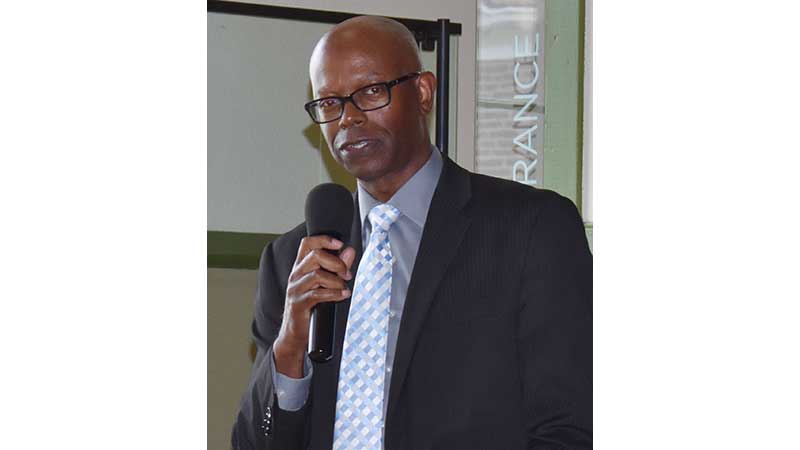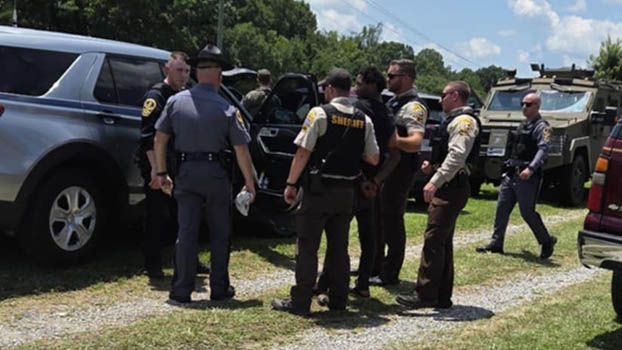Questions about partnership
Published 1:34 pm Tuesday, May 29, 2018

- Moton Museum Board of Trustees Chairman Drexel Harris addresses participants during a community meeting at the museum about a partnership between Longwood University and the museum May 23. (Photo by Emily Hollingsworth)
Members of the community and those involved with the Robert Russa Moton Museum posed questions about a partnership between the museum and Longwood University that took effect in 2015 — and why the public had not been notified of a land deed that places the museum property into the ownership of Longwood Real Estate Foundation.
Among the speakers were Chairman of the Moton Board of Trustees Drexel Harris, Secretary Jim Weinberg, Moton Museum Director Cameron Patterson, Longwood University President W. Taylor Reveley IV and Moton Council Representative to the Board of Trustees Joy Cabarrus Speakes.
Carl Eggleston, Alanna Rivera, James Ghee, the Rev. J. Samuel Williams Jr. and Larissa Smith Fergeson spoke during the meeting.
Harris said the community meeting took place to explain more in-depth a partnership that took place between the university and museum in 2015.
The process to create a financially stable fund and create more awareness for the museum began in 2009 when Founding Director Lacy Ward Jr. sought ways to fund the museum.
Weinberg noted that Ward and the museum requested funding from the Virginia General Assembly, which failed to be included in the assembly’s budget.
Weinberg said Longwood was “a natural partner,” having already worked with the museum for some of the university’s programs relating to sociology and civil rights study.
He said the 2015 partnership created three documents, a covenant, which outlined the goals and promises between Longwood and the museum, a philanthropic document, which Weinberg described as the mechanics of vesting title of the Moton Museum between Longwood and the museum. The covenant states that in the event the partnership is terminated, the Moton council has the right to take the museum back.
The last document is the deed, which transferred the building to the Longwood Real Estate Foundation.
“From the board of trustees’ perspective, this was a very good solution to preserve the museum into perpetuity, to provide it strong financial support, and the day to day operation of the museum,” Weinberg said.
The board of trustees, according to the Moton Museum website, lists board of trustee officers as Drexel Harris, Ronald O. White and James L. Weinberg; and members as Jennifer McClellan, G. Michael Pace Jr., and Joy Cabarrus Speakes. Speakes is the Moton Council representative of the board.
The Moton Council includes six officers and 14 members who advise the board.
Longwood University President W. Taylor Reveley IV cited a concern that a future Longwood president could reverse the decision to support the Moton Museum. Reveley said the covenant contract would bind future university presidents.
“(The only way this) sacred space could ever be something different than it is right now is if the attorney general of Virginia somehow, at some distant point in the future, agreed with the Moton Council to somehow change it, and the attorney general right now works in an office that’s named after Barbara Johns,” Reveley said. “I think anything is theoretically possible in given affairs, but I think the possibility of something bad happening to this museum, a sacred place, is just impossible for me to contemplate, and that’s not just when I’m around, not just when any of us are around, it’s forever.”
Eggleston said he first discovered the deed that transferred the Moton Museum to the Longwood Real Estate Foundation while looking at unrelated documents at the courthouse. He said the document surprised him and brought serious concerns about the board of trustees’ transparency to the public, and to those who have worked at the museum for years.
“The real estate moved over to a different individual, a different entity,” Eggleston said, noting the decision took place without a public announcement. “Which is OK, but it doesn’t promote transparency.”
Eggleston, who had been a past president of Moton Museum for more than 10 years, said he and others have rights to be concerned about knowing the museum’s operations. Eggleston also noted that the museum received more than $300,000 to keep the museum open from members of the Martha E. Forrester Council of Women.
Ghee asked about the process that allowed the board of trustees to make decisions for the museum, while members of the council advise the board but cannot vote.
Weinberg said that structure was established in 2013, and noted that the board and council work together without adversarial sentiments.
Williams Jr., who worked with the Rev. L. Francis Griffin during the height of education inequality in the county in the 1950s and 1960s, said he worried that the message and role of the museum was being co-opted by the very people, members of the Prince Edward County community, who made the museum possible.
“I see Moton as a museum that is two-pronged, a museum and a movement,” Williams said. “But it needs to be a movement from the community, the Prince Edward community.”




